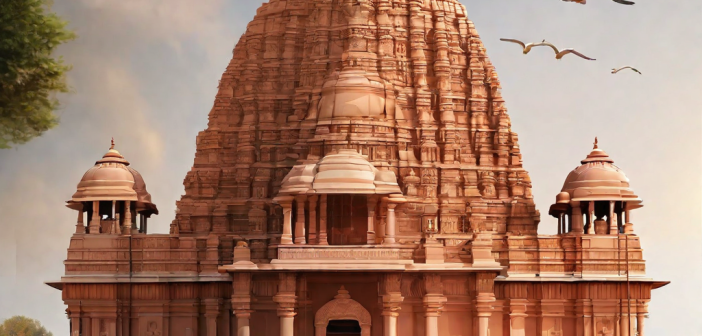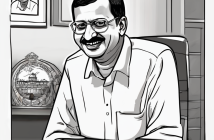Ram Mandir rises, BJP gambles. Can faith fuel a third term? Or will fissures in Hindutva crack under election pressure? The 2024 battlefield awaits, where devotion meets dissent.
Ram Mandir’s consecration fuels BJP’s 2024 election strategy. Will religious fervor solidify power or ignite social tensions? Unmasking the political gamble in Ayodhya’s sacred ground.
The Ayodhya Ram Mandir issue has long been a significant and contentious topic in Indian politics. Its roots lie in a historical dispute over a religious site in Ayodhya, Uttar Pradesh, believed by many Hindus to be the birthplace of Lord Ram, a major deity in Hinduism. This site also housed the Babri Masjid, a mosque, until its demolition in 1992. The controversy surrounding this location has sparked religious and political tensions for decades.
Historical Background
The dispute dates back to the 16th century when the Babri Masjid was built. However, it gained prominence in Indian politics in the late 20th century, particularly with the rise of the Bharatiya Janata Party (BJP). The party, associated with Hindu nationalism, leveraged the issue to gain substantial political support. The demolition of the mosque in 1992 led to widespread communal riots, embedding the Ayodhya issue deeply into India’s socio-political fabric.
Significance in Indian Politics
The Ram Mandir has symbolized not just a religious sentiment but also a political tool for mobilizing a large segment of the Hindu population. For many, it represents a historical correction of perceived injustices, while for others, it’s a symbol of secularism’s erosion in India. The issue has been pivotal in shaping voter behaviours and political alliances.
BJP’s Approach to the Ayodhya Issue
As the 2024 Lok Sabha elections approach, the BJP has intensified its focus on the Ram Mandir issue. Their approach is multifaceted:
- Campaign Tactics: The BJP has employed a mix of religious symbolism and development rhetoric. They underscore the construction of the Ram Mandir as a fulfilment of a long-standing promise to their Hindu base, intertwining it with the narrative of national pride and cultural revival.
- Public Statements: Leaders from the BJP have made numerous statements highlighting the Ram Mandir as a symbol of Hindu unity. These statements often connect the temple’s construction and the idea of a resurgent Hindu India.
- Policy Decisions: The government has allocated funds and resources for the temple’s construction and development of Ayodhya as a religious tourism hub. This move is seen as a commitment to their Hindu nationalist agenda.
Galvanizing Support
The BJP’s emphasis on the Ram Mandir issue consolidates and energises its core voter base. By framing the temple’s construction as a historic achievement, the party aims to evoke a sense of victory and fulfilment among its supporters. This strategy also appeals to broader Hindu sentiments, potentially swaying undecided voters.
Influence on Voter Sentiment
The BJP’s narrative around the Ram Mandir has significantly influenced voter sentiment. For many Hindus, the issue transcends politics, touching upon cultural identity and religious beliefs. The party focuses on this issue to align these sentiments with their electoral objectives.
Perspectives from Political Analysts
Political analysts are divided on this strategy’s effectiveness. Some argue it strengthens the BJP’s hold on its traditional base, while others contend it might alienate moderate and secular voters. However, there is a general consensus that the issue will be critical in shaping the 2024 electoral landscape.
Quotes from BJP Leaders
BJP leaders, including Prime Minister Narendra Modi, have repeatedly emphasized the temple’s importance. In his speeches, Modi has linked the temple to India’s cultural renaissance, stating, “The Ram Mandir will symbolize our national ethos and the values we hold dear.”
Conclusion: Potential Impact and Implications
The BJP’s strategy of leveraging the Ram Mandir issue in the 2024 elections is a calculated move to align religious sentiments with political objectives. Its impact could be substantial, potentially swaying voter preferences and shaping the electoral outcome. However, this strategy also raises questions about the role of religion in Indian politics and its implications for the country’s secular fabric. The 2024 elections will show how these dynamics play out in the world’s largest democracy.




